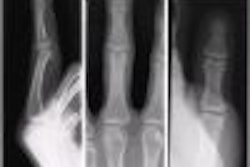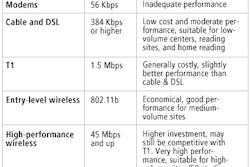
REA Healthcare Strategies

And let me say it up front: I’m in marketing. It’s a profession. If the sum total of your marketing plan is to drop off doughnuts and be nice to referring offices, you may as well work for Krispy Kreme.
OK, I’ll get off my soapbox now and take a calmer approach. Marketing is strategic. You study your business, analyze your referral sources, and develop programs to grow volumes.
Referral patterns
Analyze referral patterns by specialty, exam type, and payor. Identify your top referrers by volume and exam. Determine what your priorities are and which areas you’d like to see grow.
You'll need to honestly assess which areas aren’t priorities. You may have an office that refers mostly x-rays. Is it crucial to you? The office might be worth maintaining, but you probably don’t need to dedicate extra time to it.
Now, an office that refers high-end MR is another thing entirely. If you can increase the volume there, you might see a good jump in revenue. Practices that are new or expanding also represent growth opportunities for your center.
Another important step is to analyze a doctor’s referrals by payor. This can seem harsh, but it’s only pragmatic. A high-referring doctor may be referring underpayors that do not reimburse well. Conversely, a low-referring doctor may be sending you higher-paying contracts. Your strategy in this case is obvious -- increase market share with the second doctor.
Office-call schedule
Next, develop a call schedule based on your analysis of referral patterns. Be strategic. Ensure that key offices -- those with the greatest potential to help you meet your goals -- are the ones you call on most often.
You can break offices into groups that are called every month, every six weeks, eight weeks, 16 weeks, and so on. Be sure to factor in the usual turnover rate for referral scheduling staff, and take into account your current rapport with the practice.
Offices with high turnover will require more frequent office calls, so be sure yours is the first center to make contact with new referral schedulers. Offices with multiple schedulers may require more frequent calls, because you may not be able to speak with each scheduler when you call, or the schedulers may not work full-time.
Offices that show potential will probably need more frequent office calls than their current volumes dictate -- especially if the office has a strong relationship with your competitor. It takes frequent contact to establish and maintain top-of-mind awareness, especially if your goal is to increase your share of referrals.
Does the office strongly prefer to refer to your practice? This group may not need as much massaging, though they should always be a priority.
Strategic office calls
If doughnuts aren’t the focus, what should you do on an office call? First, let me say that food can get an office’s attention.
Use that attention to your advantage. Make sure the staff is informed about your latest upgrades, if that means significant improvements in your service. Make sure they know about services you provide that are meaningful to their specialty. Promote anything that is unique about your practice.
A key tip: Instead of just talking about your center, present your information in terms of actual benefits the referring office or patients will experience. At the core, everybody wants to know how they can benefit. "What’s in it for me?" Answer that question and you'll make a real impact on your referring office.
Another crucial area that facilities often forget to update is the insurance list. Referring offices are overrun by patients’ questions about insurance for their own physicians. If you can, provide insurance updates frequently (at least quarterly). By supplying the latest information, you become an information resource. Besides, distributing the list gives you another reason to call on an office. The list will also call attention to your new payor contracts.
Get to know key office staff. I’ve had several doctors and administrators acknowledge that it’s usually the referral scheduling staff that really chooses where to send patients, insurance permitting. Some radiology practices focus only on referring doctors, but the office staff does exercise a great deal of control.
Establishing good rapport with referring office staff is valuable for several reasons. Obviously, it can increase referrals. And if you have a service glitch, the referring staff will be more likely to talk to you about the problem and you can act quickly to correct it before other offices are impacted. Key office staff can be a great source of information about their practice. They may be adding doctors, changing services, opening a second location -- all opportunities for you to market your facility.
Tip of the iceberg
A well-planned office-call strategy to establish solid relationships with referring offices is key to growing your imaging center volumes. Although there are certainly additional marketing efforts to use to target practices -- symposiums, training sessions, tours of your center, and so on -- office calls are an opportunity for informal one-on-one meetings. Make the most of your calls!
By Rosy RiosAuntMinnie.com contributing writer
September 18, 2002
REA Healthcare Strategies Inc. is a consulting firm focusing on marketing and practice management. It specializes in developing marketing programs for vendors to provide its clients a value-added service. In addition, the group provides medical practices with strategic planning, billing practice reviews, reimbursement optimization, project management, and customer-service training programs.
Related Reading
Performance metrics can help maximize investment returns, July 29, 2002
Revenue optimization, compliance assurance provide practice Rx, July 15, 2002
The strategic advantages of radiology networks, July 15, 2002
Referring physicians give thumbs up to PACS, June 11, 2002
Marketing plan charts course to success for radiology group, June 5, 2002
Copyright © 2002 REA Healthcare Strategies



















